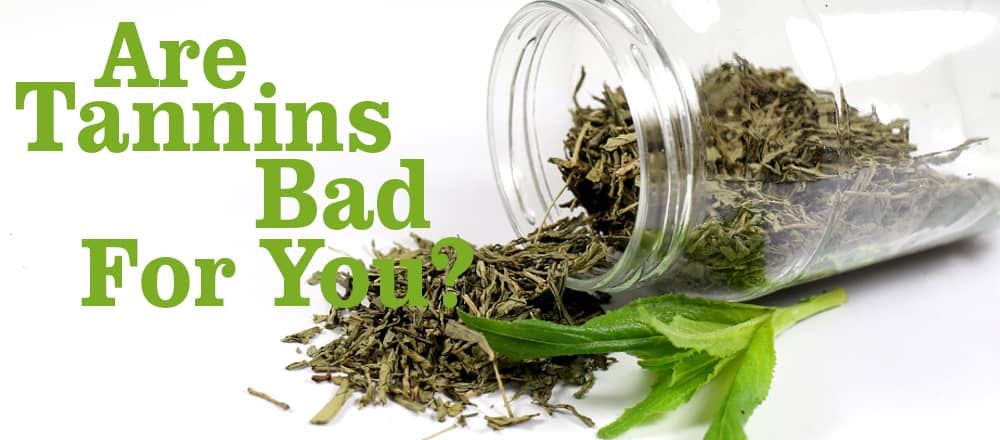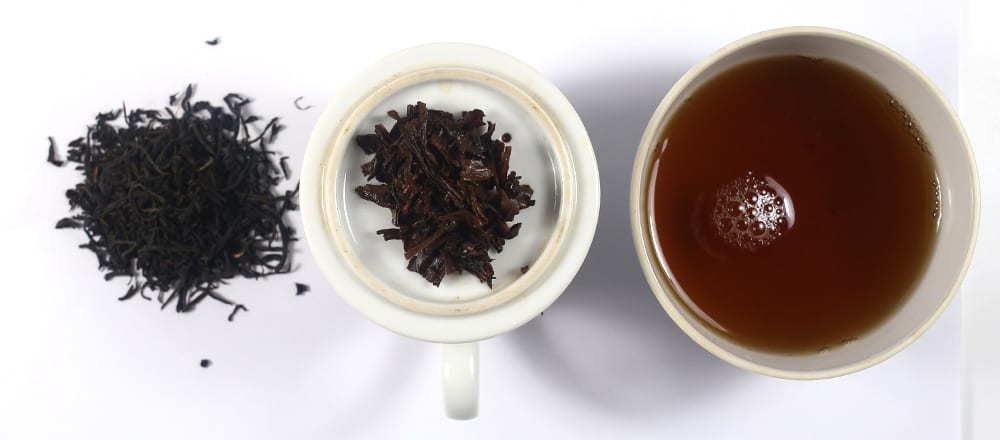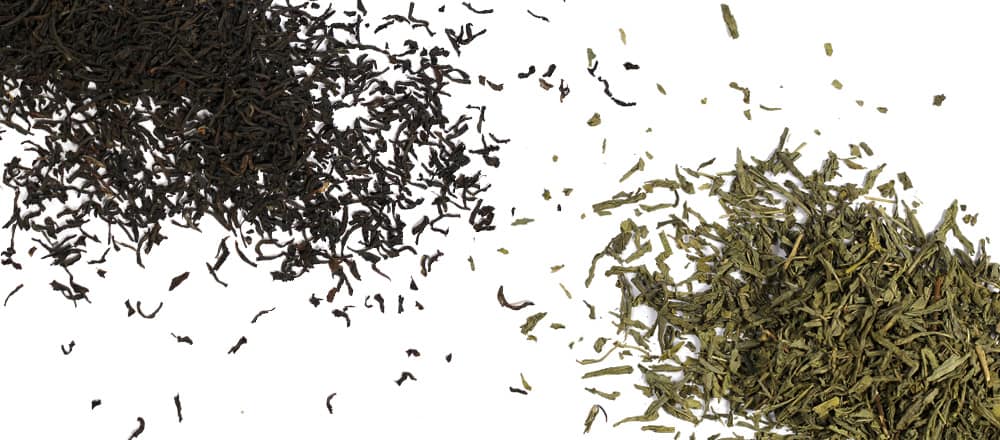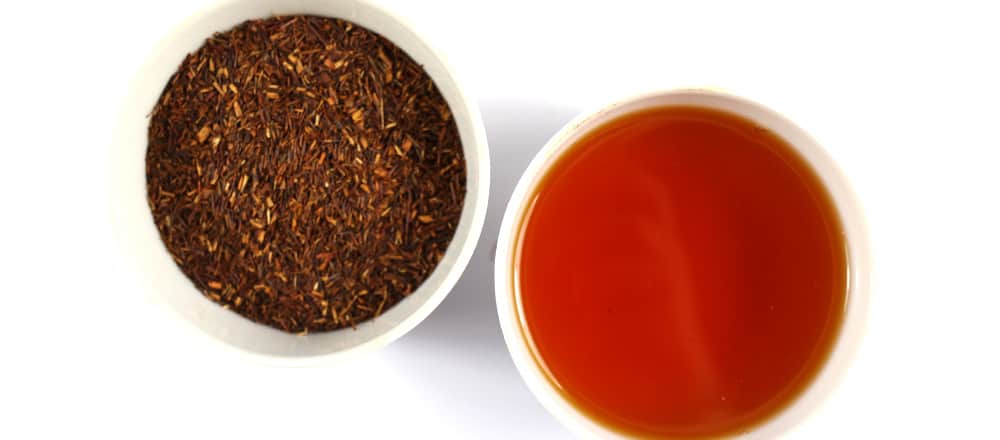Are Tea Tannins Bad For You?

Tannins in Tea have a big part to play in your morning cuppa. But are Tea tannins bad for you? These chemical compounds, most famously associated with red wine, have baffled Tea drinkers for many years. It appears, according to the internet, that people can’t make up their mind whether or not they are a help or hindrance to everyday life.
This article will answer the question, “are they bad for you?” once and for all. You will then have the opportunity to browse our vast selection of Teas available online and in-store. We pack everything fresh to order, ensuring not only quality but also consistency.

What Are Tannins in Tea?
Tea is generally high in tannins. But what, exactly, are they? Tannins, also known as tannoids or tannic acid, are a class of astringent polyphenols. They exist in a variety of naturally occurring substances, including wood and, of course, Tea leaves. Many people recognise the term from leather. Tannins in Tea, however, provide a distinct bitter taste when brewed.
Indeed, this bitterness and astringency contributes significantly to the much-loved taste of Tea. But that’s not all tannins can do. According to modern science, they have antioxidant activity, particularly in Green Tea and Black Tea. These antioxidants come with extraordinary health benefits. Consider reading our blogs, Benefits of Green Tea Benefits and Black Tea Benefits for more information.

Are Tea Tannins Bad?
Are they really bad for you? It depends. There is no denying the fact, for example, that drinking Tea can reduce the risk of several chronic conditions. This, indeed, is in part due to its tannin content in tea. On the other hand, these chemical compounds can, in some cases, also hinder digestion and metabolism. For the most, though, it’s good news.
Depending on the Tea type, and as such, the level of tannins, the pros far outweigh the cons. Green Tea is, perhaps, the best choice when it comes to the antioxidants brought about by tannins. One particular type of tannin called catechin rules supreme in terms of its health benefits. The most vital catechin in Green Tea is, without a doubt, Epigallocatechin gallate (EGCG).
EGCG, in particular, can improve our health and wellbeing in a multitude of ways. Without the tannins in Tea, you wouldn’t have this antioxidant improving cardiovascular health, enhancing brain function or promoting weight loss.

A Low Tannin Alternative
Still not convinced? Perhaps you’re still worried about the question, “are Tea tannins bad for you?”. If so, that’s absolutely fine. There is, after all, one particularly popular low-tannin alternative available through The Kent and Sussex Tea and Coffee Company: Rooibos.
This is a herb that grows exclusively in the Cederberg region of South Africa. It is famously low in tannins, as well as being a caffeine free tea. It comes from the perennial Aspalathus linearis plant, a member of the Fabaceae (Legume) family.
The indigenous peoples of the region have used Rooibos Tea in their daily lives for centuries. Today, its popularity has soared in part due to its low tannin levels. There are also other health benefits to be had from drinking this Herbal Tea.
Conclusion
Tannins in Tea have some downsides, but for the most, they’re beneficial. Not only do they provide a unique taste to your morning brew, but they also have antioxidant activity. Some people, however, still choose to steer clear of tannins. An excellent alternative for this is Rooibos.
Now, the time has come to explore our range of quality products. Choose between Loose Tea (Green, Black, White or Oolong), Herbal Tea, Fruit Tisanes or Coffee. Whatever you decide, you’ve decided well with us. Start your journey today.

 Loose Leaf Tea
Loose Leaf Tea Pyramids
Pyramids Tea Bags
Tea Bags Africa
Africa Assam
Assam Ceylon
Ceylon Chinese
Chinese Darjeeling
Darjeeling European
European Indian
Indian Japan
Japan Nepal
Nepal South East Asia
South East Asia Ayurveda Tea
Ayurveda Tea Black Tea
Black Tea Chai Tea
Chai Tea Flowering Tea
Flowering Tea Fruit Tisanes
Fruit Tisanes Green Tea
Green Tea Herbal Tea
Herbal Tea Matcha Tea
Matcha Tea Oolong Tea
Oolong Tea Organic Tea
Organic Tea Pu erh Tea
Pu erh Tea Rooibos Tea
Rooibos Tea White Tea
White Tea Asian Coffee
Asian Coffee Caribbean Coffee
Caribbean Coffee Central American Coffee
Central American Coffee South American Coffee
South American Coffee Coffee Blends
Coffee Blends Decaffeinated Coffee
Decaffeinated Coffee Espresso Coffee
Espresso Coffee Ethically Sourced Coffee
Ethically Sourced Coffee Flavoured Coffee
Flavoured Coffee Organic Coffee
Organic Coffee Single Origin Coffee
Single Origin Coffee Chocolate 1
Chocolate 1 Chocolate 2
Chocolate 2 Chocolate 3
Chocolate 3 Chocolate 4
Chocolate 4 Chocolate 5
Chocolate 5 Chocolate 6
Chocolate 6 Chocolate 7
Chocolate 7 Chocolate 8
Chocolate 8 Chocolate 9
Chocolate 9 Loose Tea Filters
Loose Tea Filters Tea Accessories
Tea Accessories Tea Bricks
Tea Bricks Tea Caddies
Tea Caddies Tea Caddy Spoons
Tea Caddy Spoons Tea Gift Ideas
Tea Gift Ideas Tea Infusers
Tea Infusers Tea Strainers
Tea Strainers